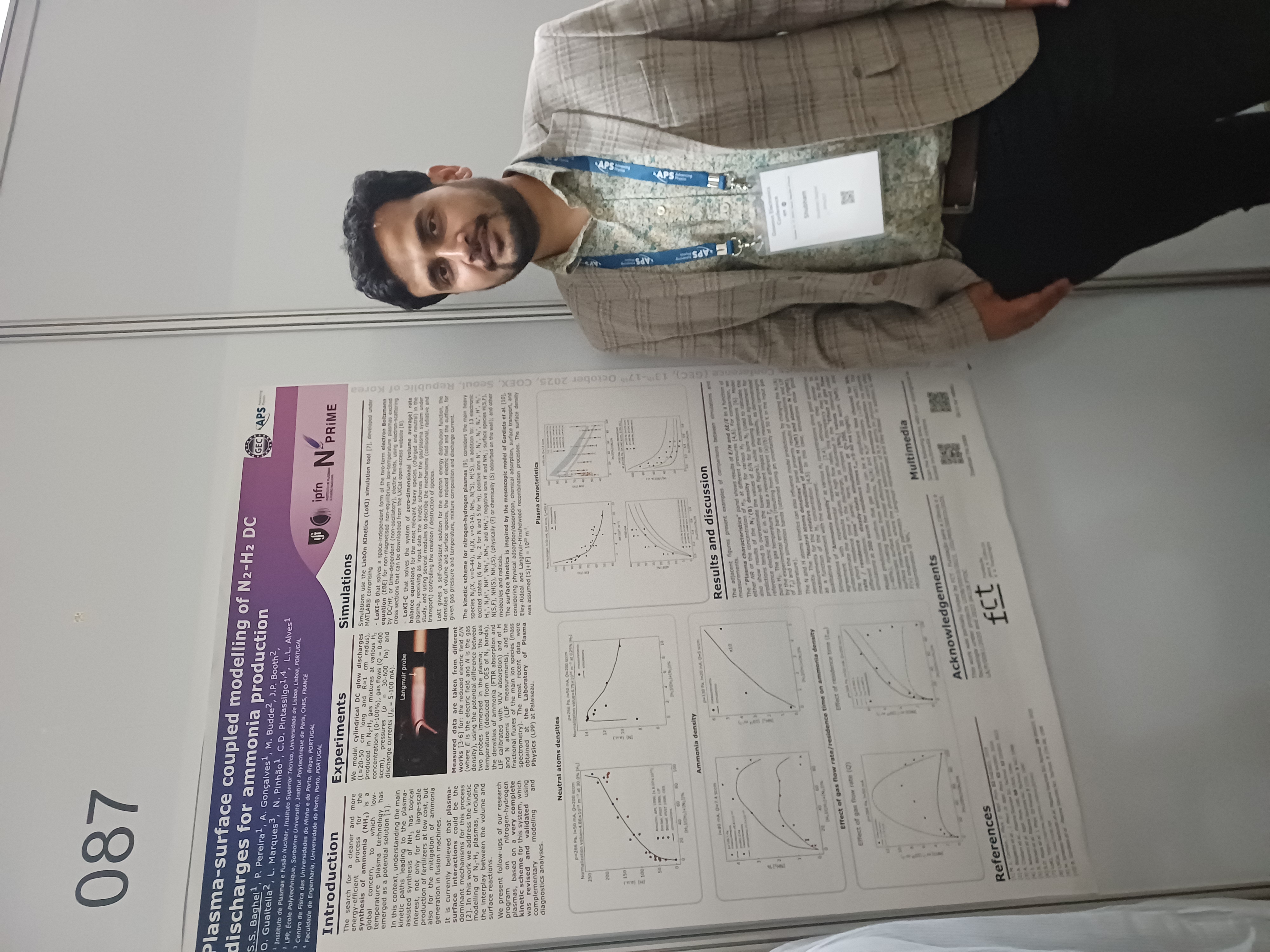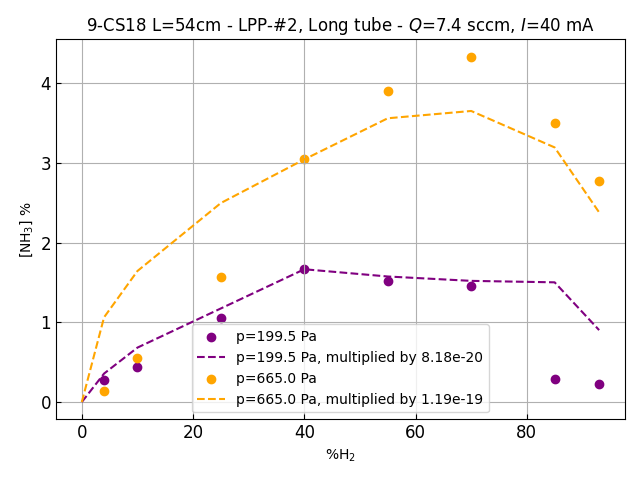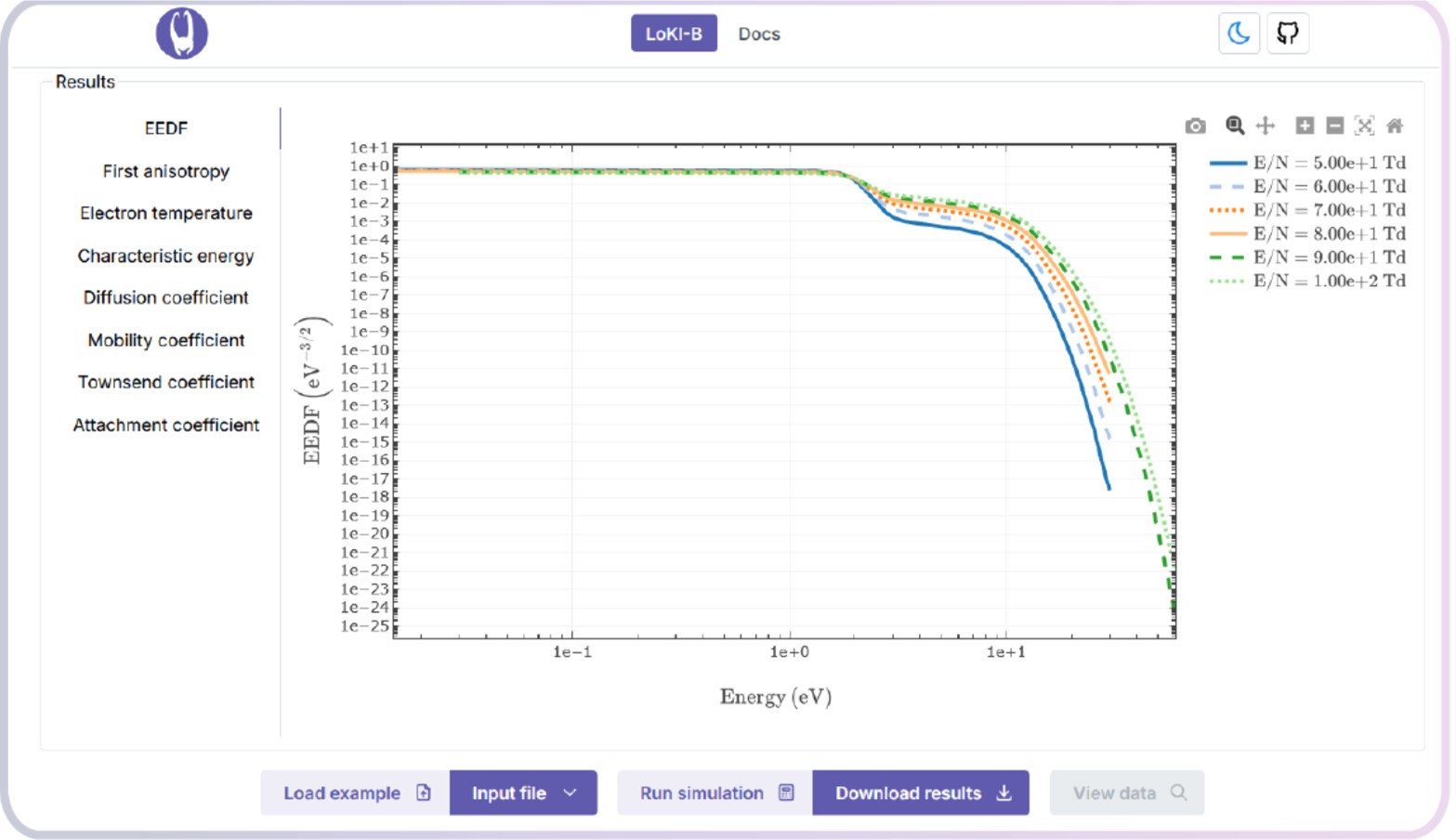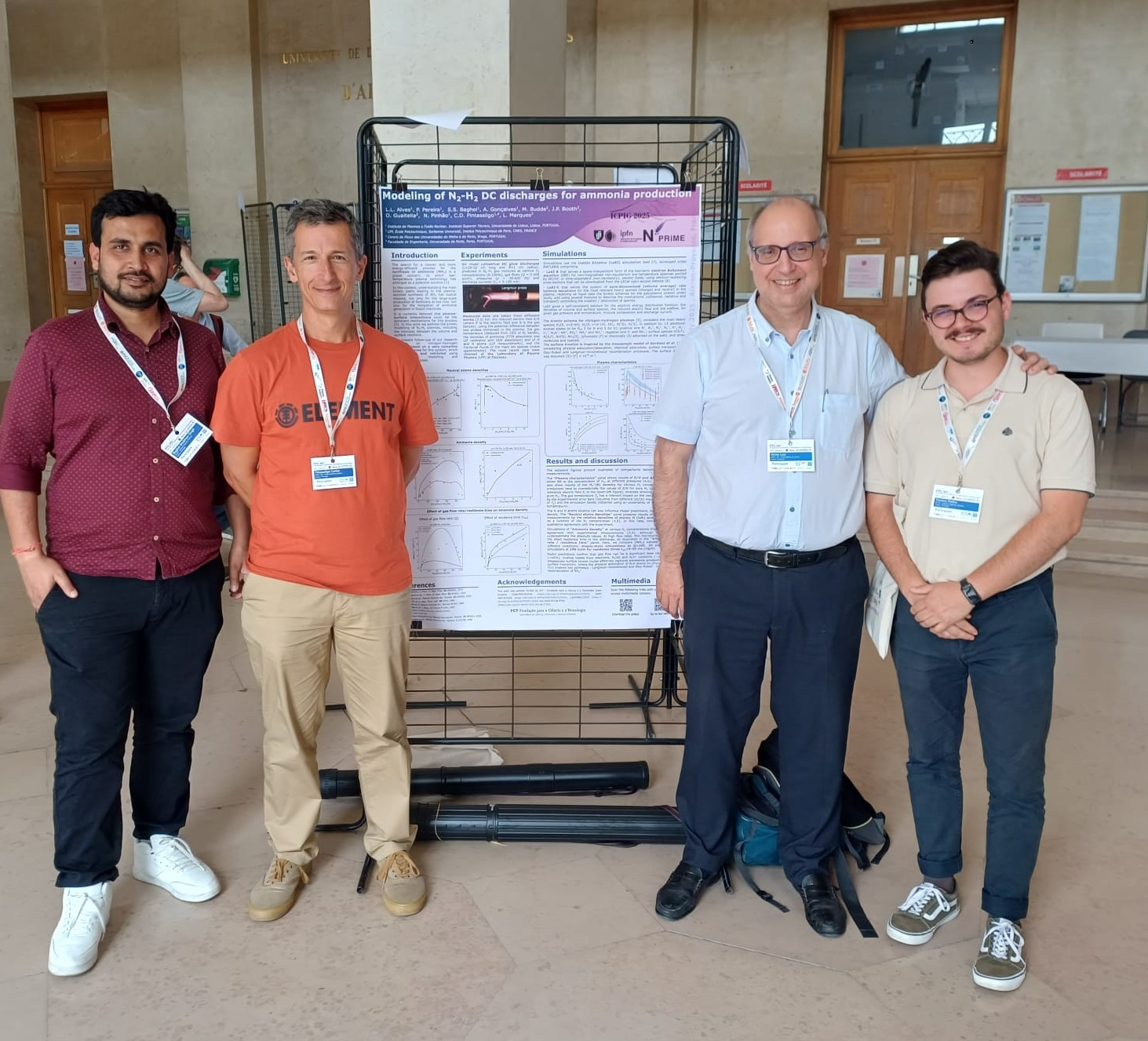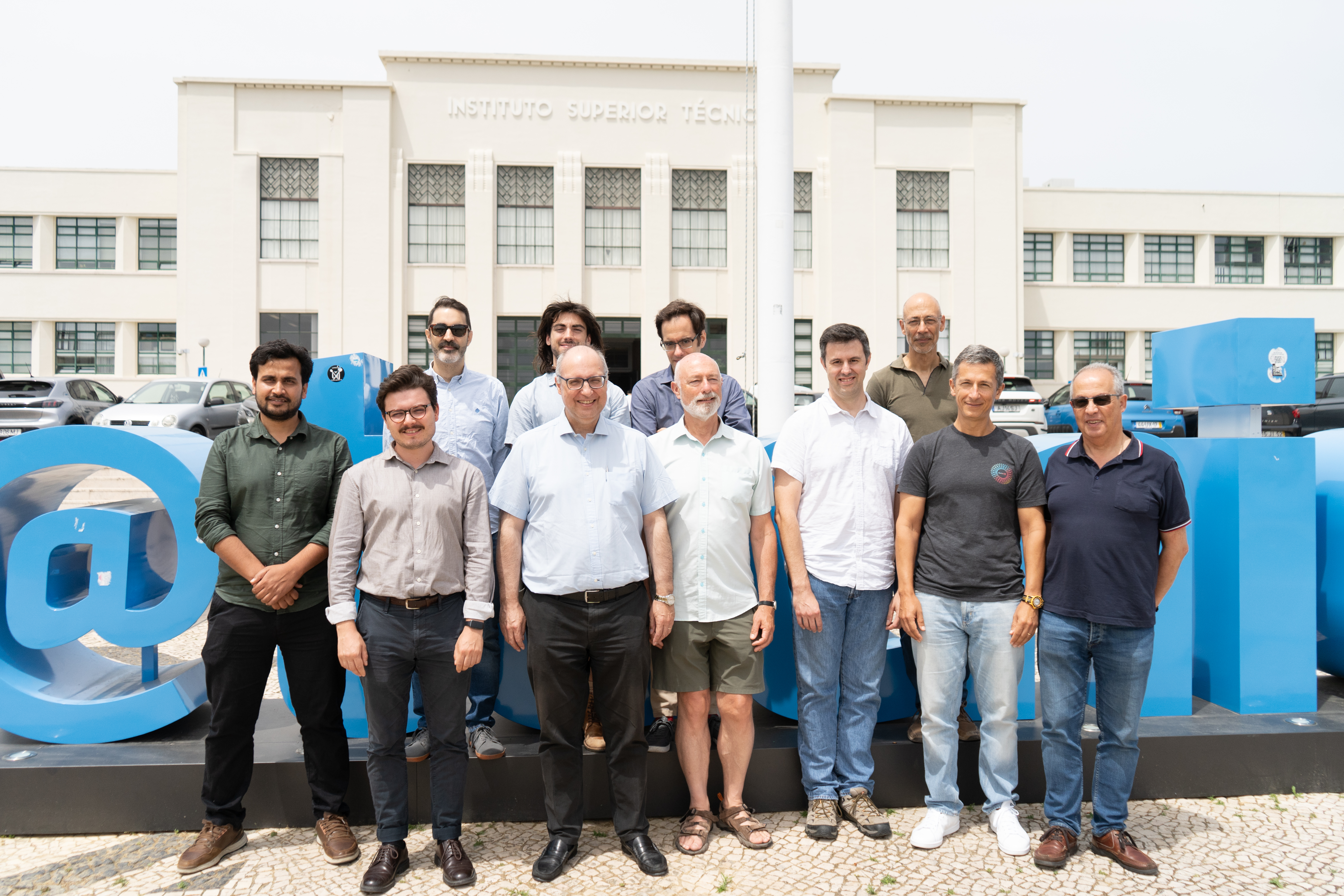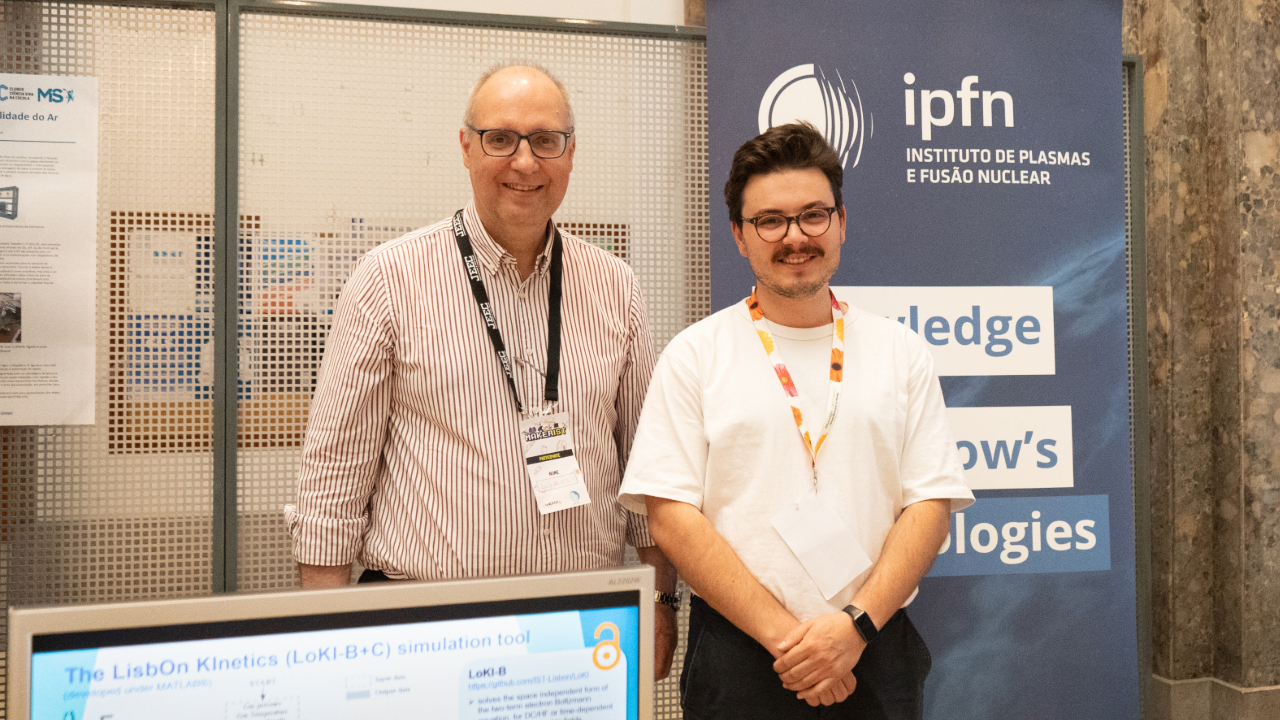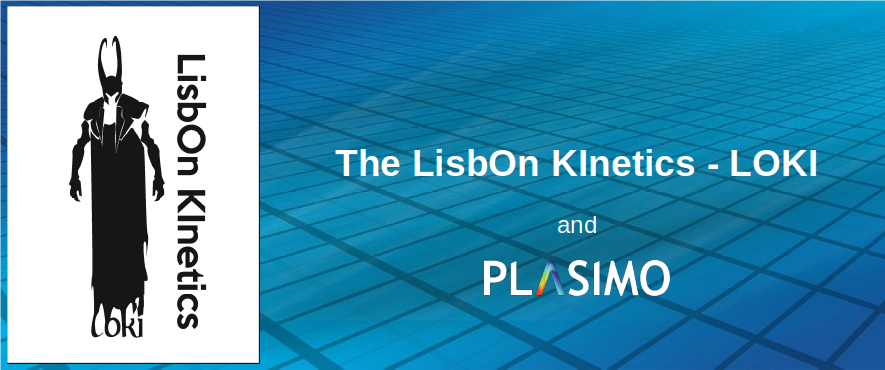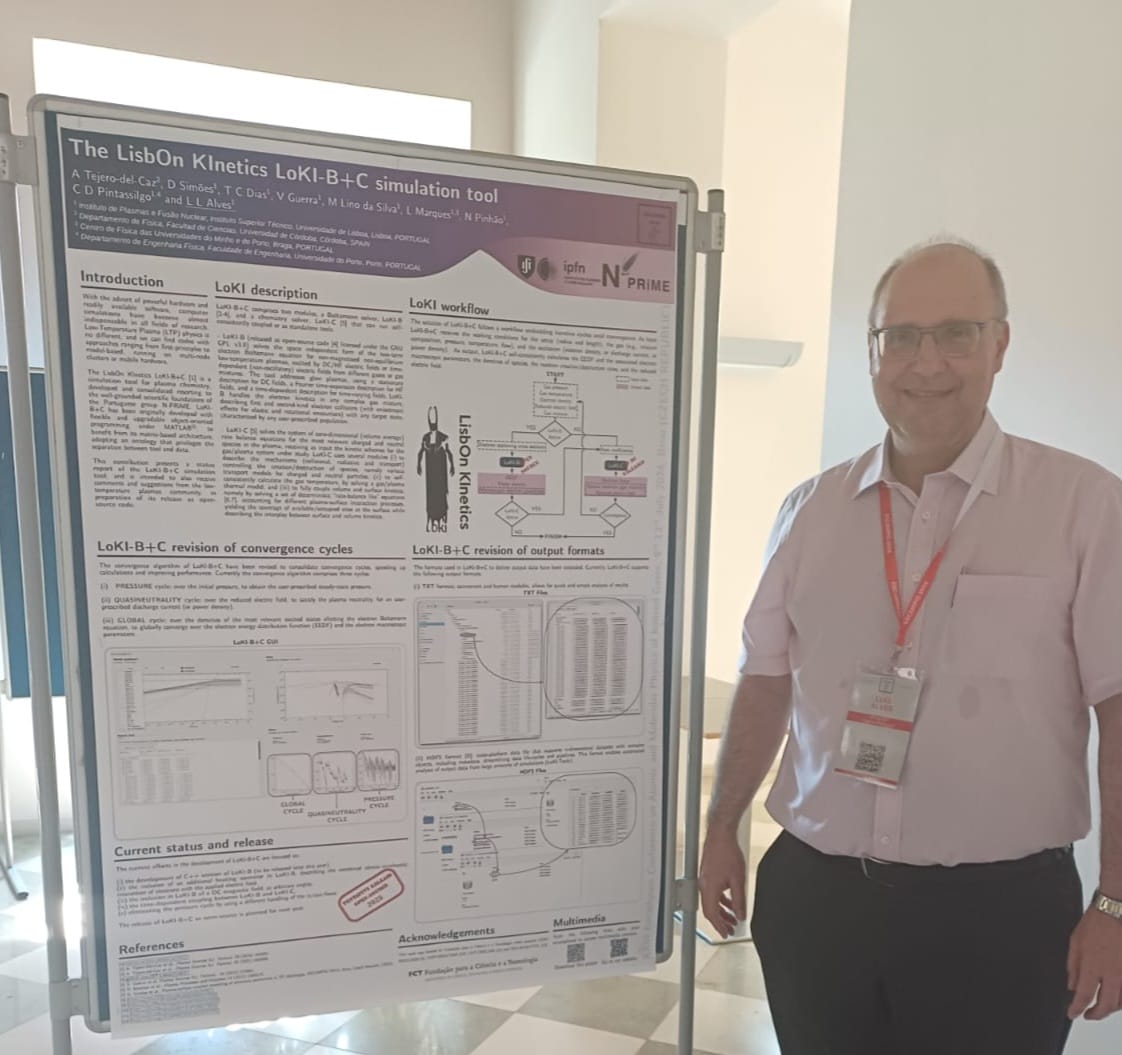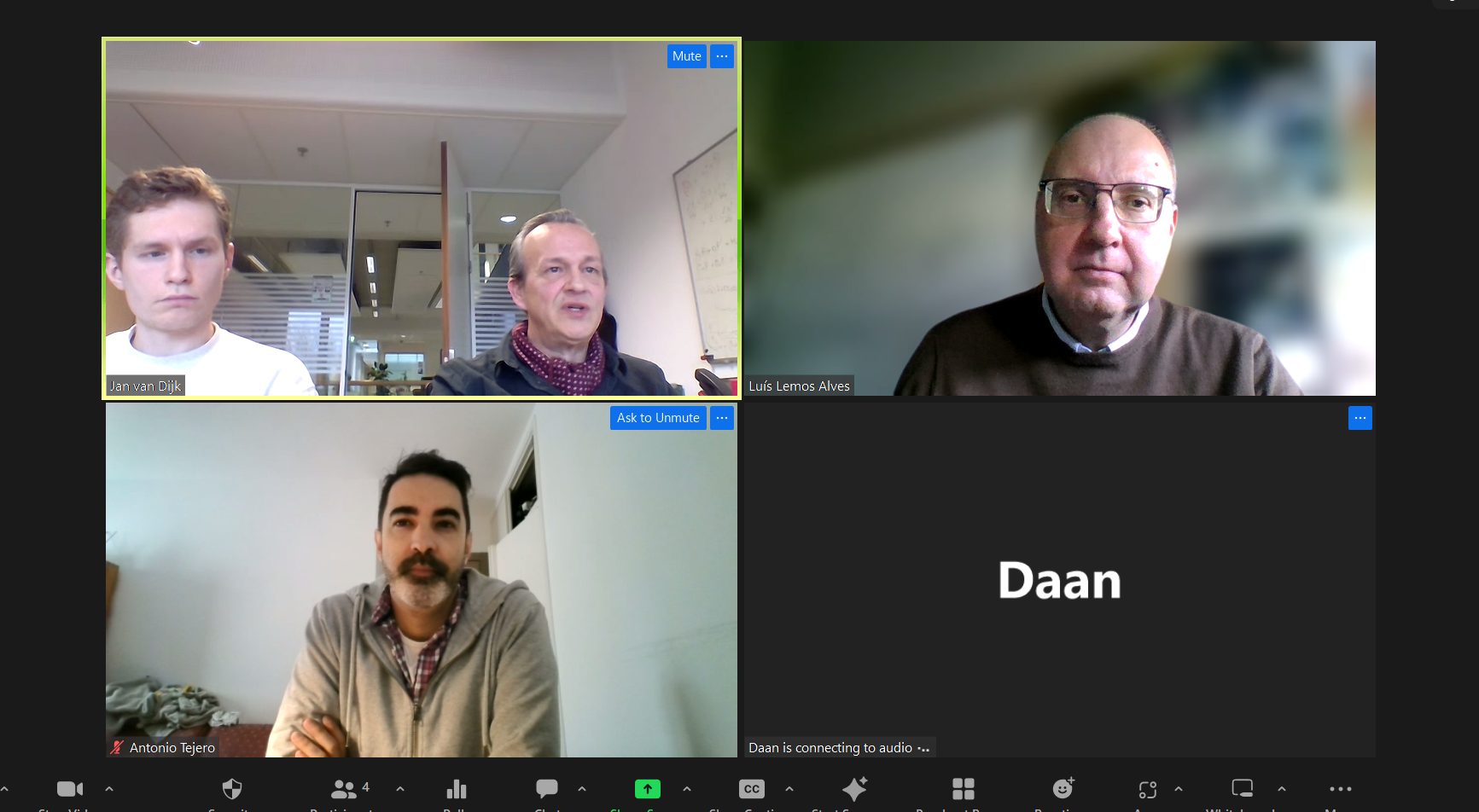PSI.COM at GEC 2025
Project members attended the 78th Annual Gaseous Electronics Conference (GEC) (13-17 October 2025, Seoul, Republic of Korea).We presented posters Plasma-surface coupled modelling of N2-H2 DC discharges for ammonia production (SBaghel), Electron collision cross sections for H2 and NH3 relevant to N2-H2 plasma modelling (SBaghel), The LisbOn KInetics LoKI-B+C simulation tool (LLAlves) and Electron kinetics description with combined stochastic and Ohmic Fokker-Planck heating operator (LLAlves).
The conference was an occasion to show the last results of project PSO.COM and to interact with several colleagues from the low-temperature plasmas community.


